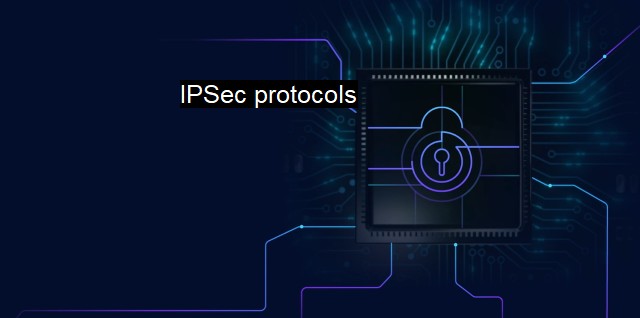What are IPSec protocols?
Securing Online Communication: An In-Depth Look at IPSec Protocols for Enhanced Cybersecurity
IPSec, or Internet Protocol Security, is a collection of protocols developed by the IETF (Internet Engineering Task Force) that ensure the integrity, confidentiality, and authentication of data communications over an IP network. this is a crucial tool used to safeguard data from undetected alteration, unauthorized access, and unethical misuse.IPSec answers the need for advanced access control, recognized privacy, robust data integrity, and stringent security. It functions at the specification level of the internet protocol suite, layer-3, essentially in the network layer, creating secure paths at the IP level. This is in contrast to Secure Sockets Layer (SSL) and Transport Layer Security (TLS), which operate at higher levels in the protocol stack. One significant advantage of this positioning is that operating at the IP level allows it to secure both control and data connections for protocols, thus enhancing the level of security for the devices employing it.
There are two main functions of the IPSec protocols family. One to encapsulate and encrypt the data to maintain its confidentiality and prevent data loss or theft, and the second to authenticate and verify the data origin and recipients, serving as a credible validation system. The different protocols within IPSec are Internet Key Exchange (IKE), Authentication Header (AH), and Encapsulating Security Payload (ESP), each performing distinctive roles.
IKE performs the task of mutual authentication between two parties, as well as establishing and managing Security Associations (SA). Security Associations are simple one-way communication channels that contain essential parameters for processing. IKE allows these associations to be created dynamically and managed effortlessly, avoiding manual pre-configuration that can be both complex and labor-intensive.
AH provides connectionless integrity, data origin authentication, and an optional anti-replay service. It guarantees that the data transmitted has not been tampered with in transit and truly originates from the claimed sender. it doesn't offer any data confidentiality, meaning it doesn't encrypt the payload of IP packets.
On the other hand, ESP provides all of the benefits provided by AH and also confidentiality. It encrypts the payload of the IP packet to prevent interception or eavesdropping en route. Choosing between ESP and AH would typically depend on whether data confidentiality is needed.
It is necessary to mention that a well-implemented IPSec can usually bypass nearly all forms of network censors or firewalls, but this doesn't result in weak spots that could be exploited negatively. Instead, IPSec shields the data it is transporting, and ensures it only gets to its intended recipient unadulterated. More so, at no point is it revealed what kind of data is being transported or the parties involved in the transfer. Such a blind spot in the control of information can in the wrong hands, be maliciously harnessed.
As cyber threats evolve both in sophistication and frequency, implementing secure protocol structures such as IPSec has become so critical in modern computing. Whether for business applications or individual use, secure IP protocols can drastically limit the risk of cyber breaches. Cybersecurity and antivirus structure rely heavily on these types of mechanisms for encrypting and protecting data, detecting and quarantining threats, and ensuring critical and sensitive information is safe from threat actors.
The role of IPSec protocols within cybersecurity cannot be overstated. It ensures data's confidentiality, integrity, and authentication. Organizations at every level, regardless of their size or industry, must fully understand and effectively implement these types of security measures to mitigate the risks inherent in today's hyper-connected world.

IPSec protocols FAQs
What is IPSec?
IPSec (Internet Protocol Security) is a protocol suite used for securing internet protocol (IP) communications. It provides confidentiality, data integrity, and authentication for the data that is transmitted over the network.What are the benefits of using IPSec protocols?
IPSec protocols offer a range of benefits such as secure data transfer, prevention of unauthorized access, protection against cyber-attacks and viruses, and ensure confidentiality, integrity, and authenticity of the transmitted data.What are the different types of IPSec protocols?
There are two types of IPSec protocols: Authentication Header (AH) and Encapsulating Security Payload (ESP). AH verifies the authenticity of the data by adding a digital signature, while ESP encrypts the data to prevent interception and unauthorized access.What are some common use cases of IPSec protocols in cybersecurity?
IPSec protocols are used for secure communication for remote access VPNs, site-to-site VPNs, and also for intranet and extranet connections. They are also commonly used for secure communication between enterprise networks, secure email exchange, and secure web browsing.| | A | | | B | | | C | | | D | | | E | | | F | | | G | | | H | | | I | | | J | | | K | | | L | | | M | |
| | N | | | O | | | P | | | Q | | | R | | | S | | | T | | | U | | | V | | | W | | | X | | | Y | | | Z | |
| | 1 | | | 2 | | | 3 | | | 4 | | | 7 | | | 8 | | |||||||